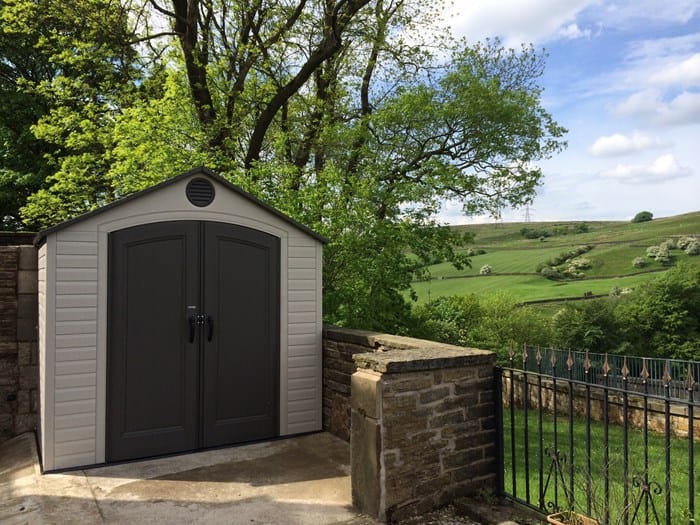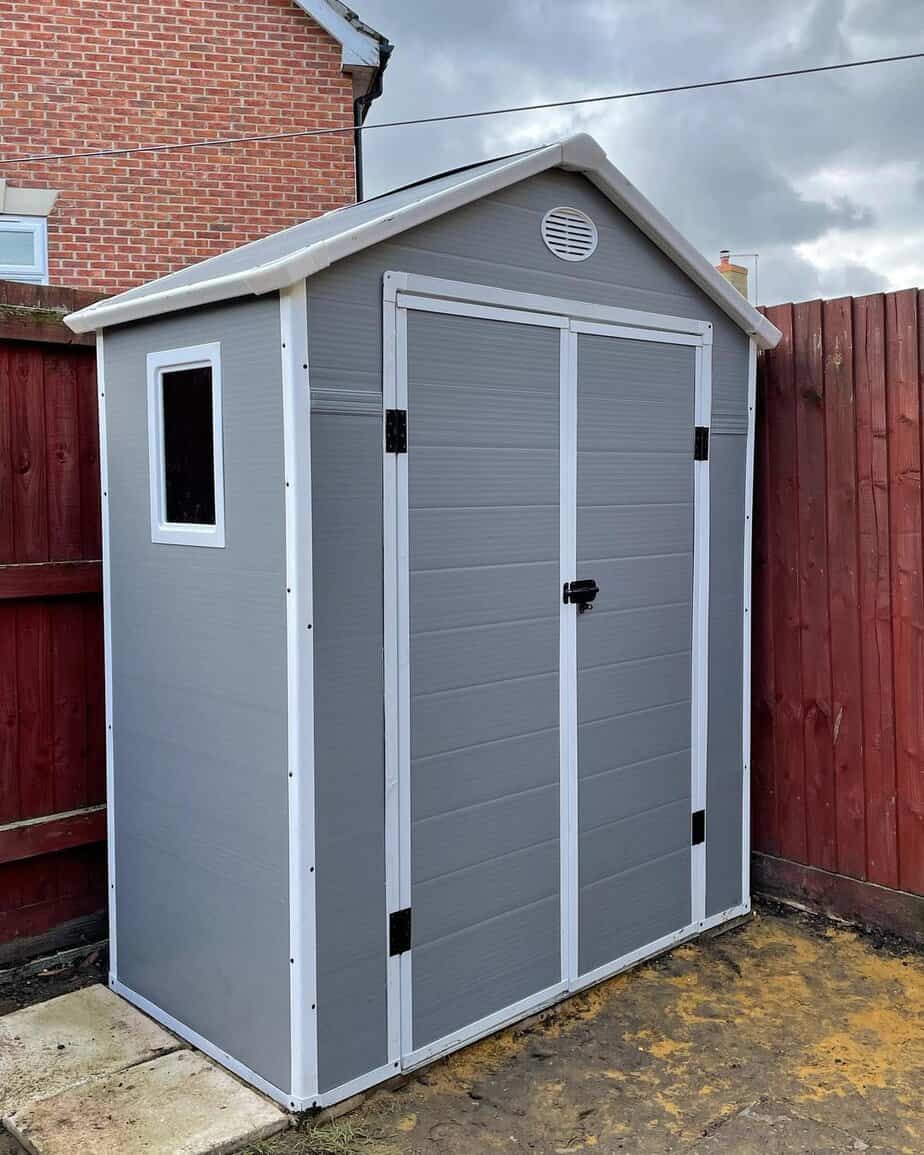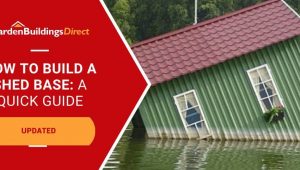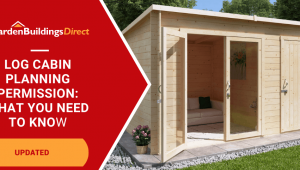Jump to:
In planning terms, the line between temporary and permanent can be tricky to pin down. Plastic sheds might not look permanent, but they could be classified as one within UK laws, depending on the situation at hand. Here’s what you need to know to clear things up.
Are Plastic Sheds Considered Permanent?
Generally, no. Most plastic sheds are temporary because they’re made from lightweight materials that aren’t designed to be structural in the long term. Other factors that support this are if the shed:
- Can be dismantled or moved easily;
- Sit on paving slabs or decking;
- Isn’t fixed to the ground with bolts or concrete.
However, a plastic shed could be seen as permanent in the eyes of your Local Planning Authority (LPA) if it’s large, bolted down, or fitted with electrics.
But let’s look at the situations where the distinction between temporary and permanent actually matters:
- Allotments, which are rented and therefore allow temporary structures only.
- Conservation land and areas of natural beauty, which are subject to tighter restrictions and all sheds may require permission.
- Listed buildings, which have curtilage controls applied to the land.
- Article 4 areas, where permission is required for all developments.
- Business use, where the local authority will want to know if your operations are impacting the surrounding area and for how long.
- Rental/shared land, where the development affects tenancy agreements.
- Legal complaints/enforcements, where permanence determines whether a shed needed permission or should be removed.
‘Permanent Structure’ Explained
A structure is considered permanent if it’s built to stay in place for the years ahead, versus short-term or temporary use. So, if yours is installed with the intention of it staying put, it could be labelled as permanent.
There’s no legal time limit that defines permanence. For example, a neighbour might install a shed for one year, calling it temporary. But if it impacts you or your property, that year could be long enough to be seen as permanent in planning terms.
Do You Need Planning Permission?
No, as long as your plastic shed falls under permitted development. These rules let you make certain changes to your property without having to apply for permission. Sheds used for storage qualify for this, regardless of the material.
However, there are conditions:
- Use: Your plastic shed must not be used for sleeping in or running a business.
- Height: No taller than 2.5m if it’s within 2m of a boundary (like a fence or your neighbour’s wall). Up to 4m allowed for a dual-pitched roof, or 3m for anything else, provided it’s more than 2m from any boundary.
- Placement: You can’t put it in front of your house (like in the front garden) without planning permission.
- Coverage: The garden room mustn’t take up more than half the land around the original house. That means how it was first built, not including extensions.
Our guide to shed planning permission goes into more detail about this.
Do You Need to Tell Your Council?
No, you don’t have to inform the council about erecting a plastic shed, especially if it follows all permitted development rules. This means it meets the size, placement, and use conditions.
Even so, we recommend checking with your LPA first—better to be safe than risk getting in trouble later.
Summary of Where Plastic Sheds Might be Permanent
- If they are bolted to the ground
- If they have electrics in place
- Most plastic sheds are temporary, but they can be classed as permanent.
- Planning permission isn’t necessary if the conditions are met.
Ultimately, the determination of temporary or permanent is decided by individual circumstances
When in doubt, check with your local council.
If a temporary shed is really what you need, perhaps just for a day or so, a fabric pop-up shed might be ideal.
FAQs
Can I put a plastic shed on a concrete base?
You can, and many do so for better support and extra stability. Just keep in mind—bolting it down might make it count as a permanent structure.
Does a plastic shed need building regulations approval?
No, unless it includes electrics or plumbing, and you need to notify your local authority.
Are plastic sheds garden buildings?
Yes, just like wooden or metal ones. They’re meant for outdoor, domestic use.







